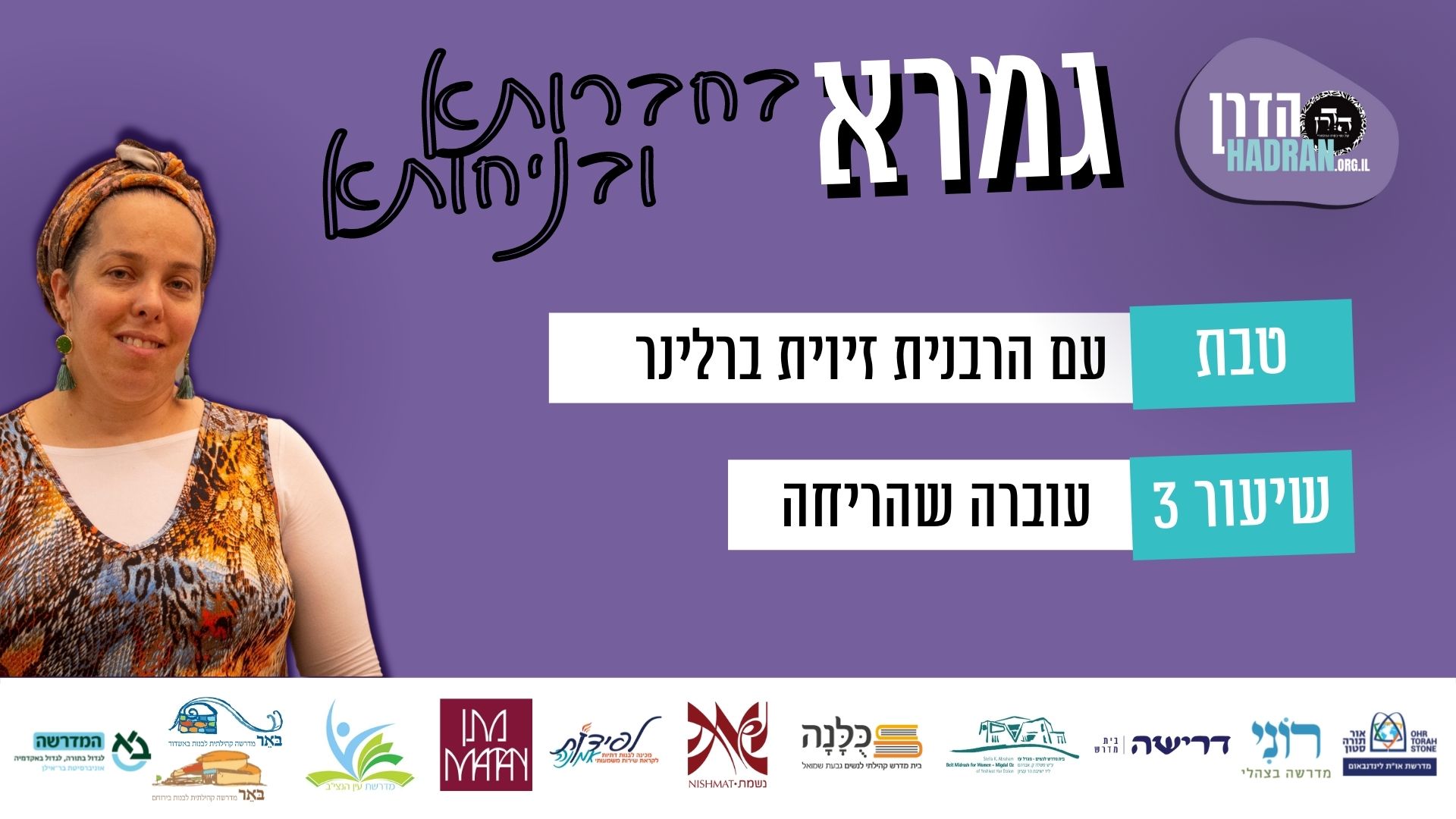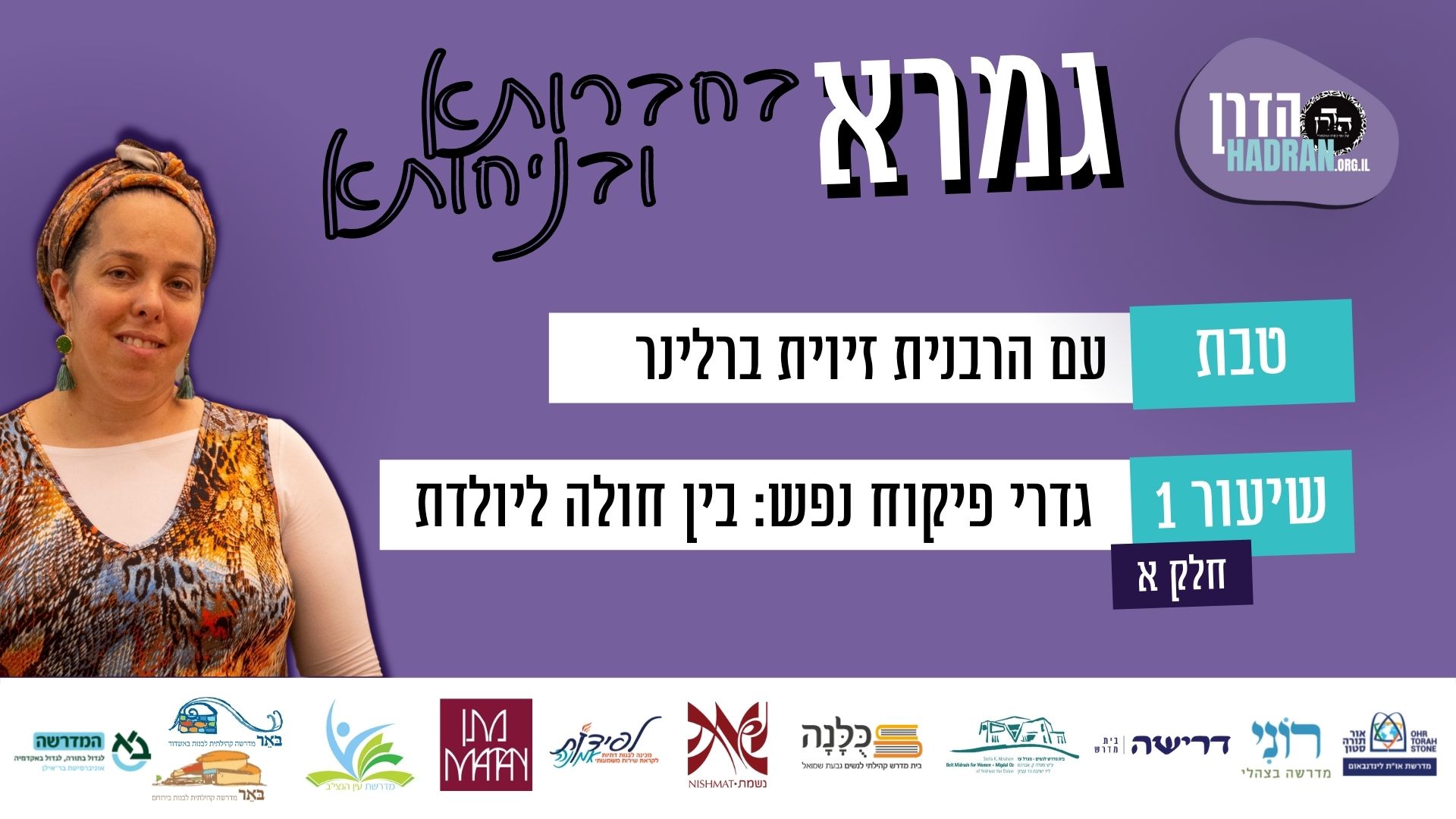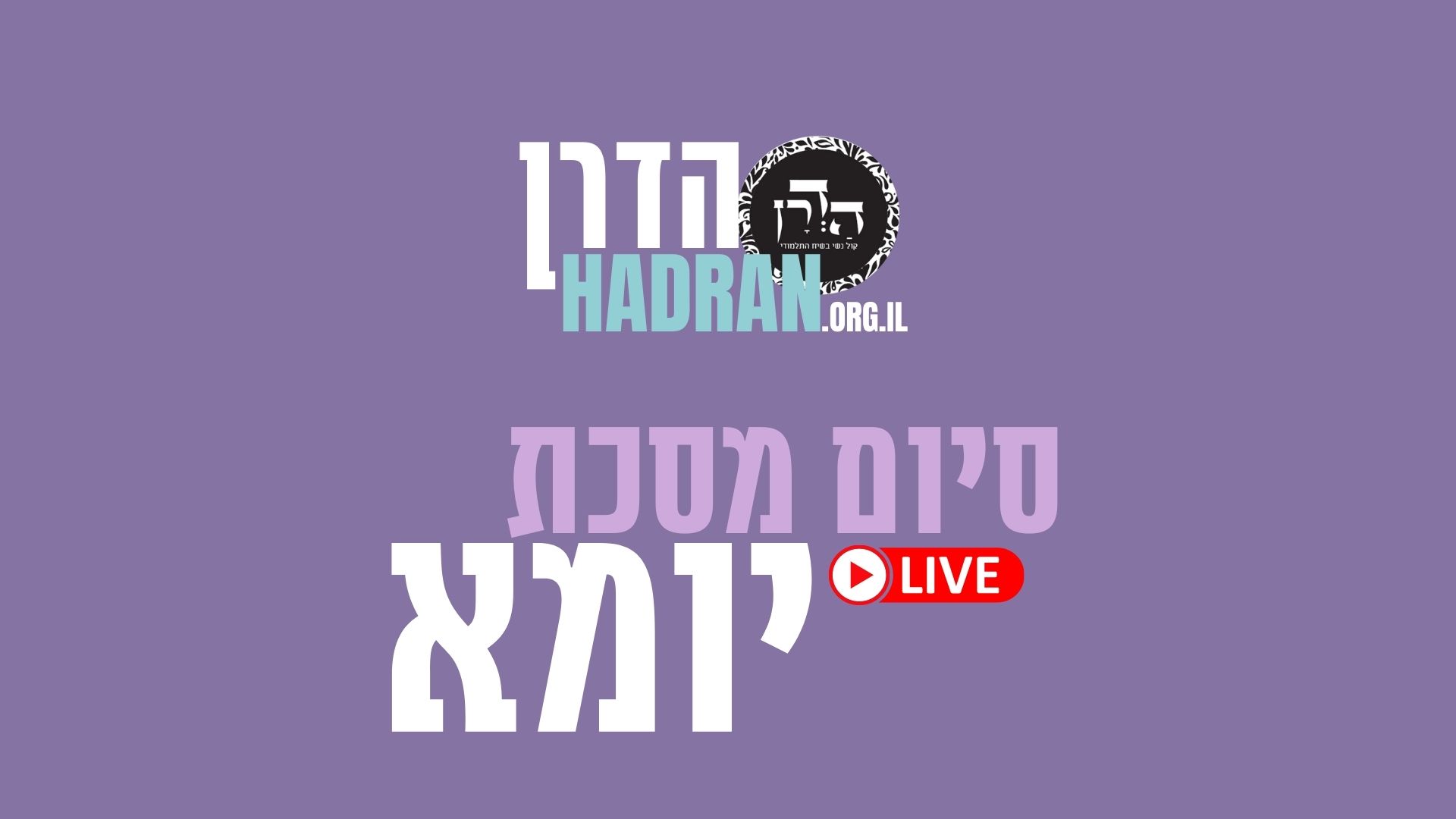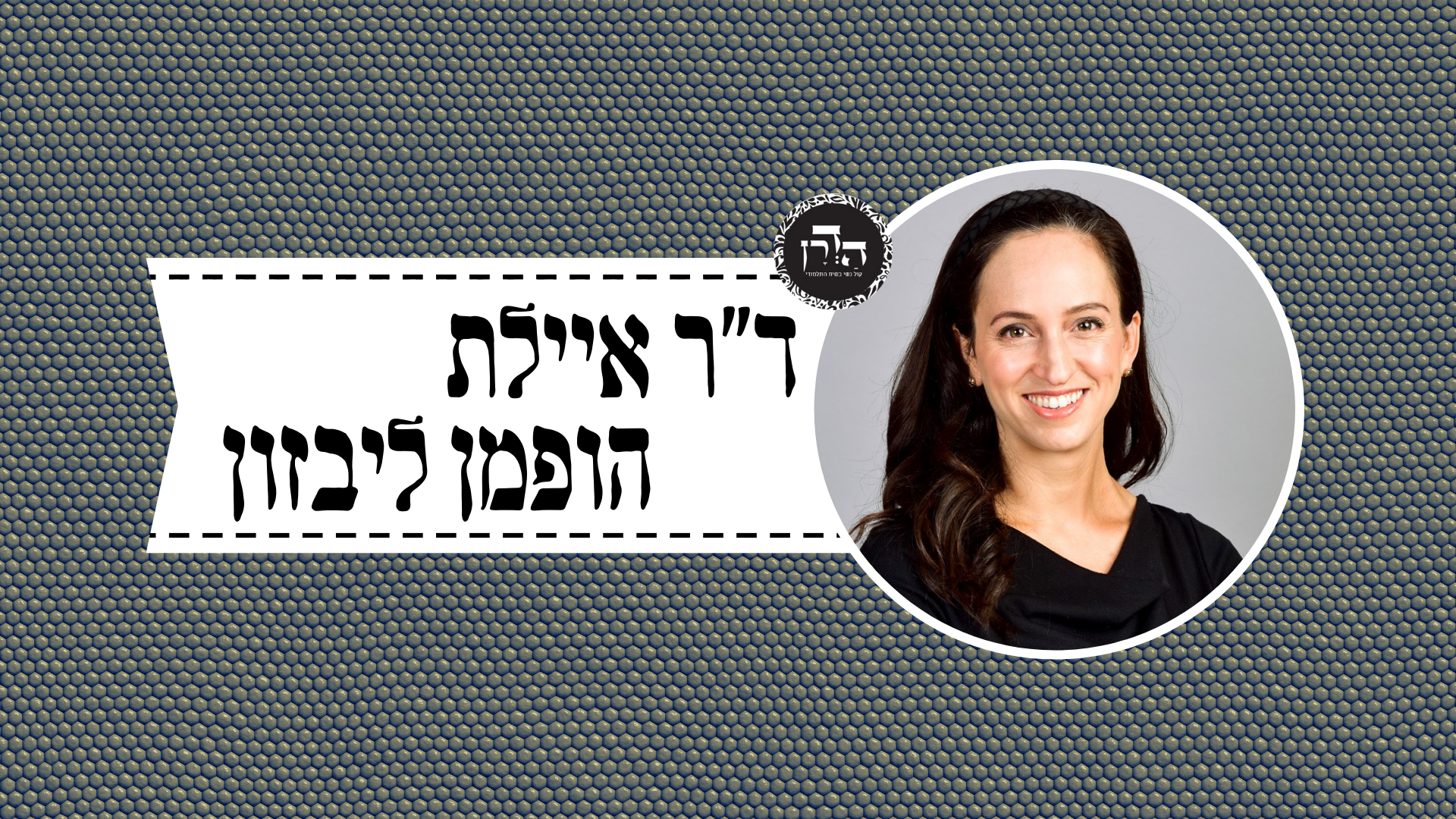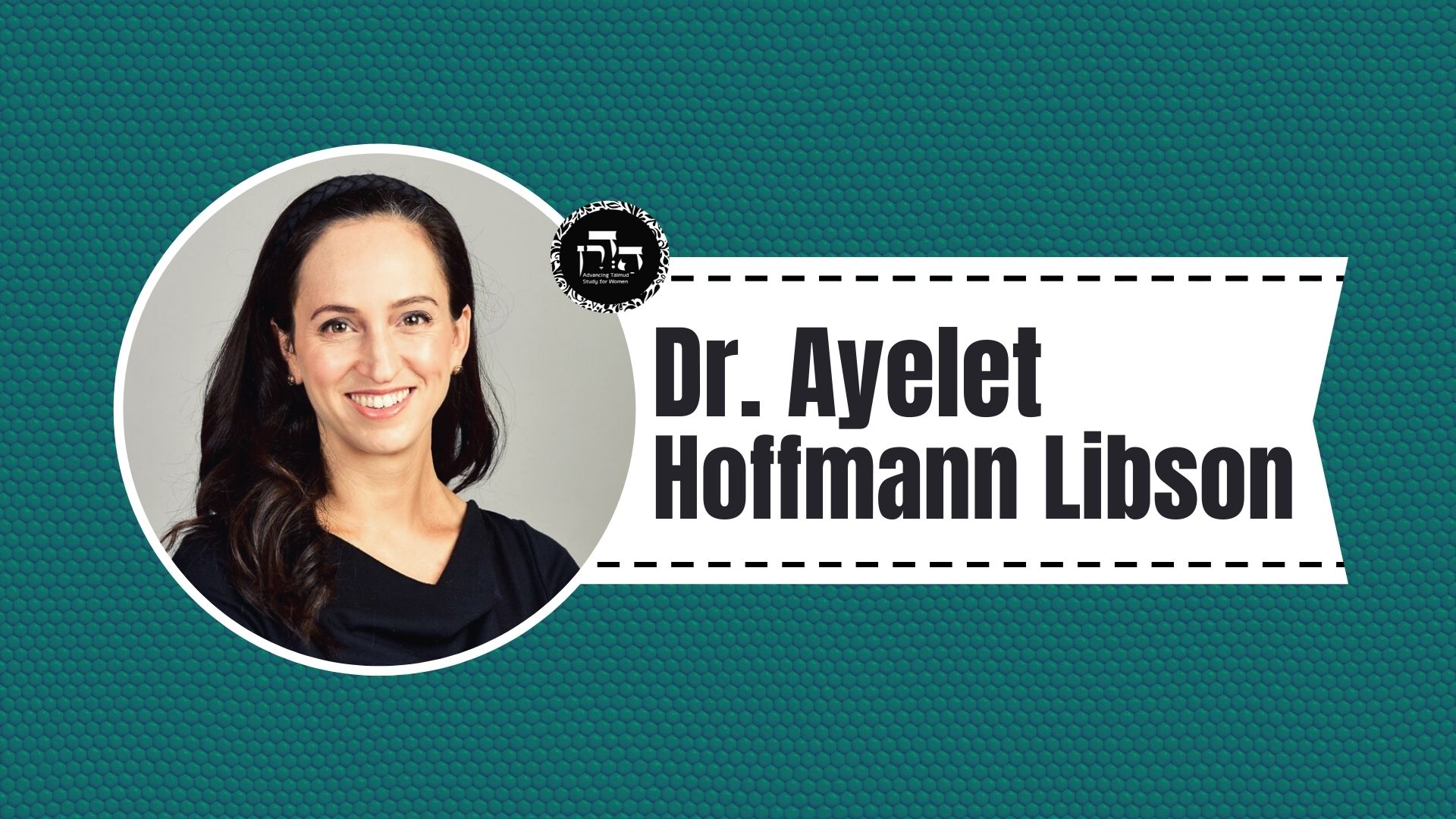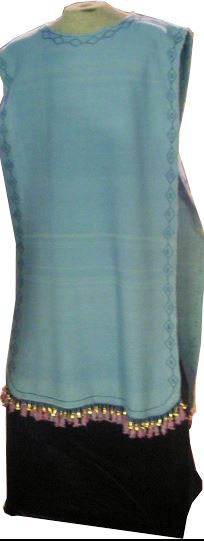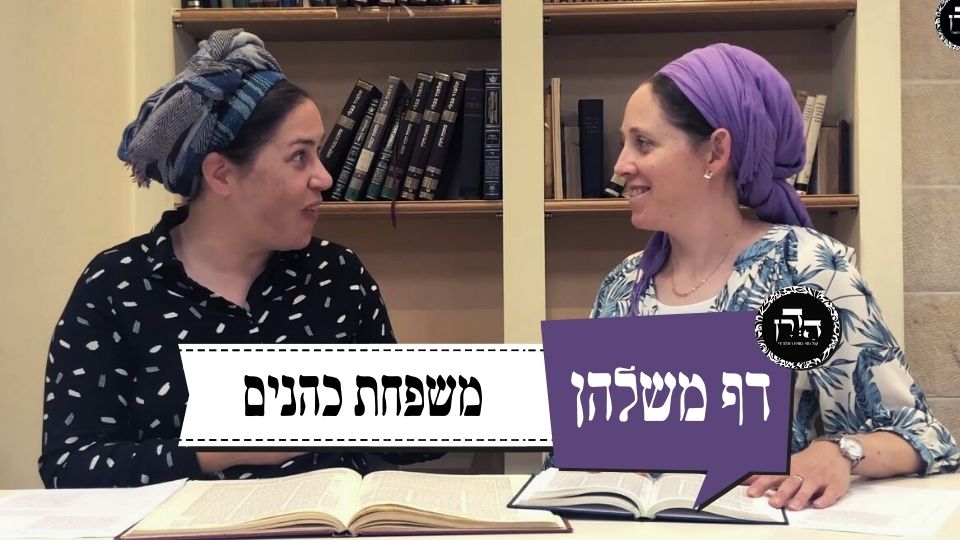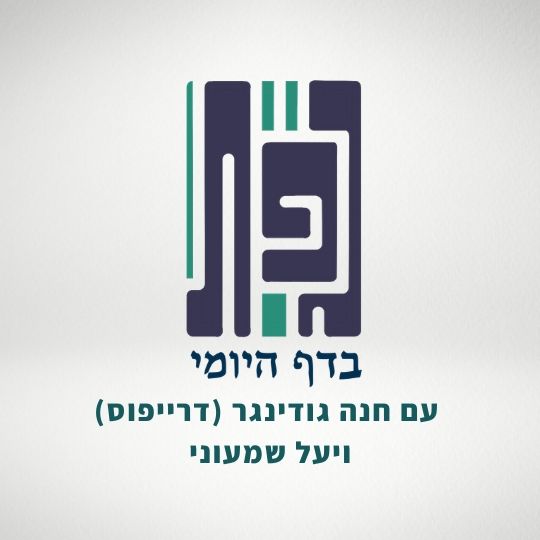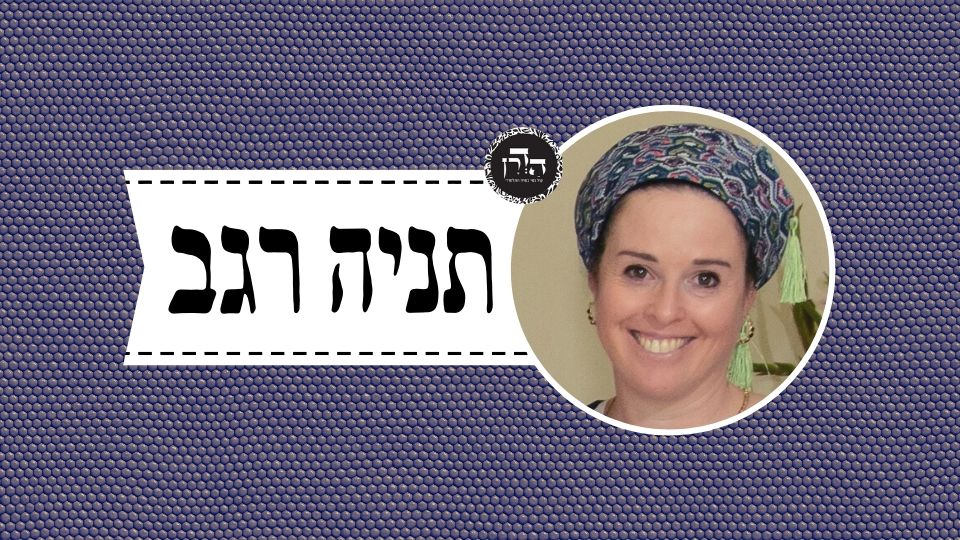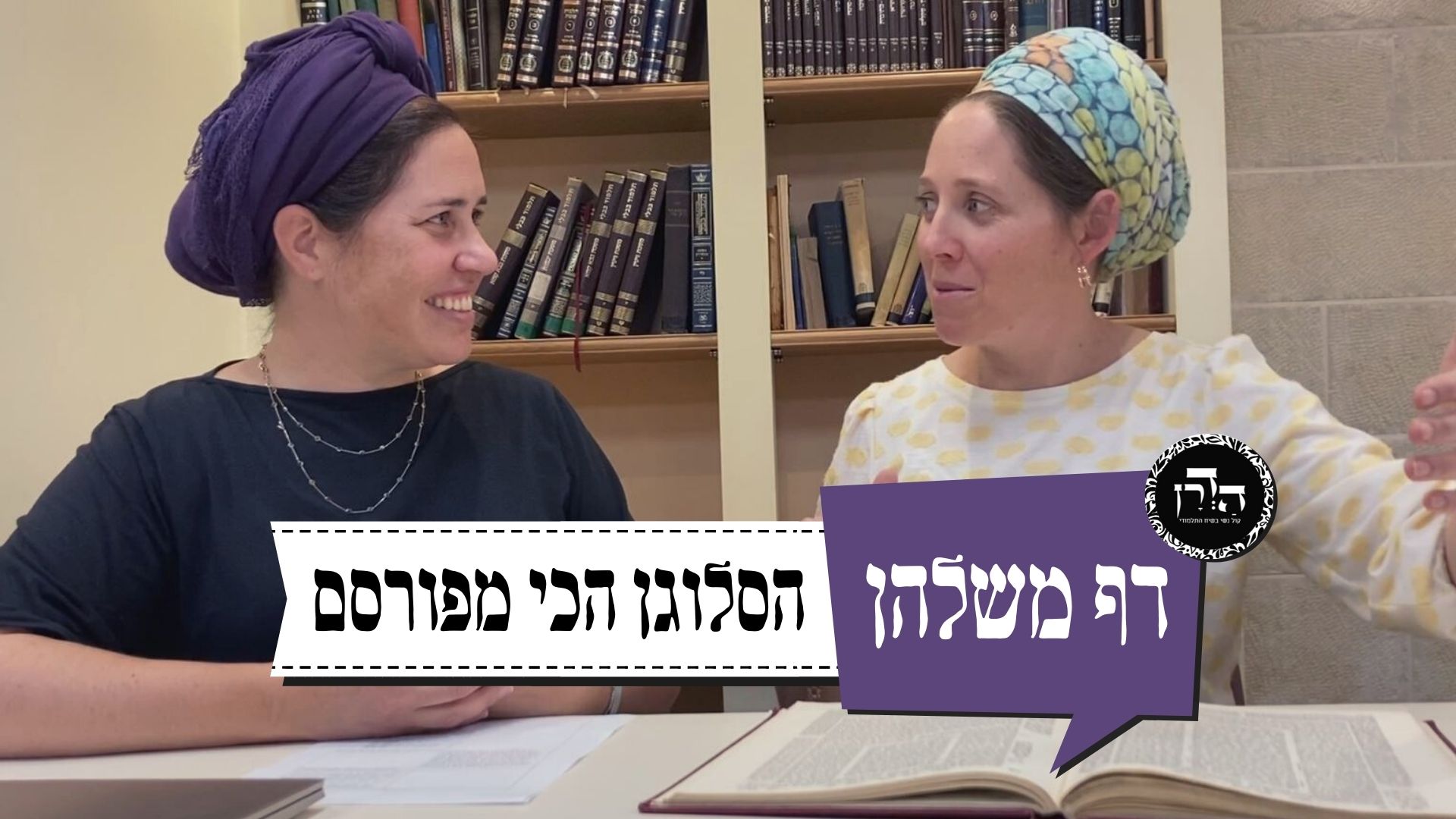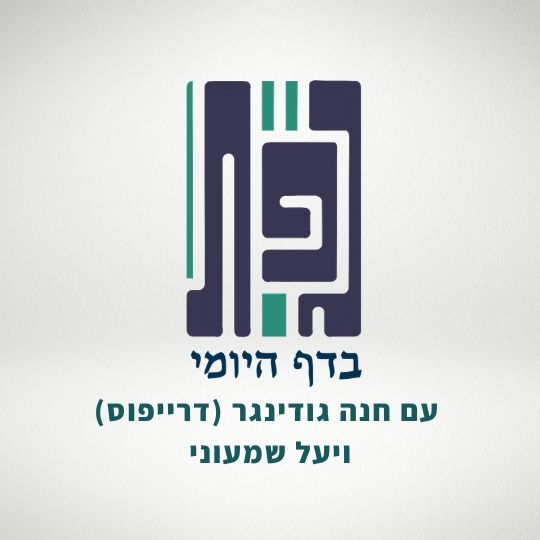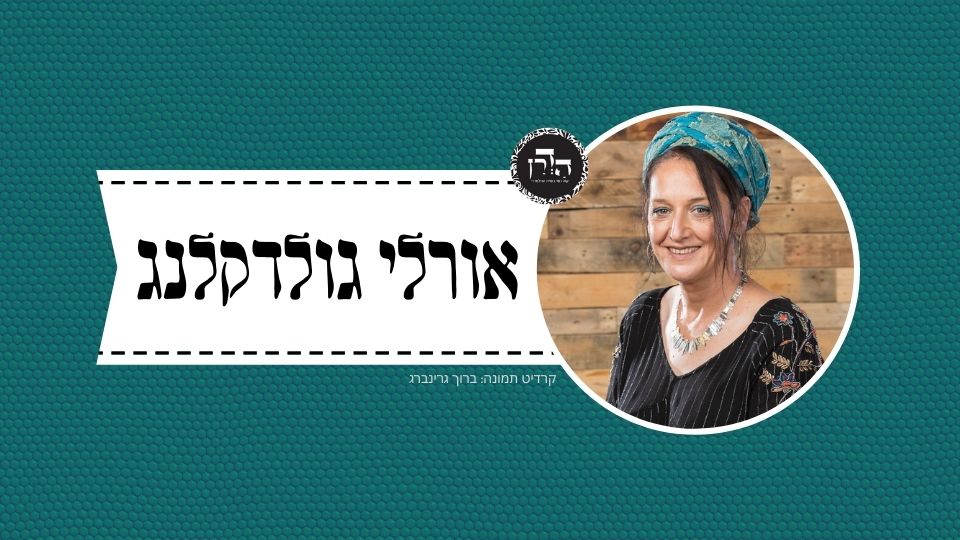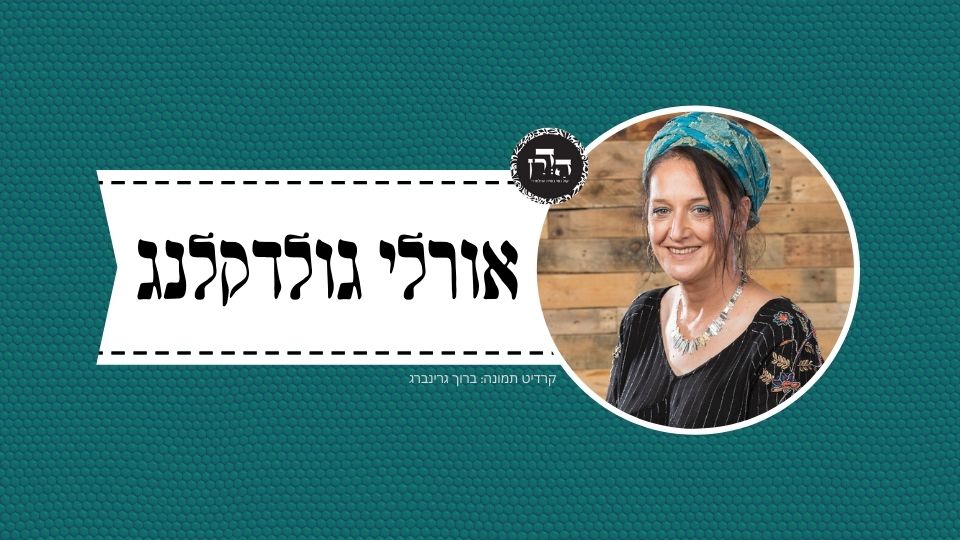יומא ח
וּמָה צִיץ, שֶׁאֵין בּוֹ אֶלָּא אַזְכָּרָה אַחַת, אָמְרָה תּוֹרָה: ״עַל מִצְחוֹ תָּמִיד״ — שֶׁלֹּא יַסִּיחַ דַּעְתּוֹ מִמֶּנּוּ. תְּפִילִּין שֶׁיֵּשׁ בָּהֶן אַזְכָּרוֹת הַרְבֵּה — עַל אַחַת כַּמָּה וְכַמָּה.
Just as with regard to the frontplate, which has only one mention of God’s name, the Torah said: “It shall be always upon his forehead,” teaching that that he should not be distracted from it, with regard to phylacteries, which have numerous mentions of God’s name in their four passages from the Torah, all the more so one may not be distracted from them.
וּלְרַבִּי שִׁמְעוֹן דְּאָמַר תָּמִיד מְרַצֶּה, וְהָא כְּתִיב ״עַל מִצְחוֹ וְנָשָׂא״! הָהוּא לִקְבּוֹעַ לוֹ מָקוֹם הוּא דַּאֲתָא.
The Gemara asks: And according to Rabbi Shimon, who says that the verse: “It shall be always upon his forehead,” teaches that the frontplate effects acceptance even when it is not on the High Priest’s forehead, isn’t it also written: “On his forehead…and shall gain forgiveness”? The Gemara answers: That verse comes to establish the place where the High Priest should position the frontplate, not to indicate that it effects acceptance only when it is on his forehead.
וְרַבִּי יְהוּדָה לִקְבּוֹעַ לוֹ מָקוֹם מְנָא לֵיהּ? נָפְקָא לֵיהּ מֵ״עַל מִצְחוֹ״. וְרַבִּי שִׁמְעוֹן נָמֵי, תִּיפּוֹק לֵיהּ מֵ״עַל מִצְחוֹ״? אִין הָכִי נָמֵי.
The Gemara asks: And according to Rabbi Yehuda, from where does he derive the halakha to establish the frontplate’s place on the High Priest’s forehead? The Gemara answers: He derives it from that which is written: “On his forehead.” The Gemara asks: And Rabbi Shimon, too, let him derive the placement of the frontplate from: “On his forehead.” The Gemara responds: Yes, it is indeed so; that is Rabbi Shimon’s source.
אֶלָּא, ״עַל מִצְחוֹ וְנָשָׂא״ מַאי עָבֵיד לֵיהּ? אָמַר לָךְ: רָאוּי לַמֵּצַח מְרַצֶּה, שֶׁאֵינוֹ רָאוּי לַמֵּצַח אֵינוֹ מְרַצֶּה. לְאַפּוֹקֵי נִשְׁבַּר הַצִּיץ, דְּלֹא מְרַצֶּה.
The Gemara asks: Rather, if so, with regard to the verse: “On his forehead…and shall gain forgiveness,” what does Rabbi Shimon do with that verse? The Gemara responds that Rabbi Shimon could have said to you: The frontplate that is intact and fit for placement on the High Priest’s forehead effects acceptance; that which is not fit for placement on the High Priest’s forehead does not effect acceptance. This comes to exclude a case where the frontplate broke, in which case it does not effect acceptance.
וּלְרַבִּי יְהוּדָה, נִשְׁבַּר הַצִּיץ מְנָא לֵיהּ? נָפְקָא לֵיהּ מִ״מֵּצַח״ ״מִצְחוֹ״. וְרַבִּי שִׁמְעוֹן, ״מֵצַח״ ״מִצְחוֹ״ לָא מַשְׁמַע לֵיהּ.
The Gemara asks: And according to Rabbi Yehuda, from where does he derive the ruling that in a case where the frontplate broke it does not effect acceptance? The Gemara responds: He derives it from the fact that the Torah did not say forehead, and instead said his forehead, teaching that it must be fit for the forehead of the High Priest. And Rabbi Shimon does not learn anything from the difference between forehead and his forehead.
נֵימָא הָנֵי תַּנָּאֵי כְּהָנֵי תַּנָּאֵי. דְּתַנְיָא: אֶחָד זֶה וְאֶחָד זֶה מַזִּין עָלָיו כׇּל שִׁבְעָה מִכׇּל חַטָּאוֹת שֶׁהָיוּ שָׁם — דִּבְרֵי רַבִּי מֵאִיר. רַבִּי יוֹסֵי אוֹמֵר: אֵין מַזִּין עָלָיו אֶלָּא שְׁלִישִׁי וּשְׁבִיעִי בִּלְבַד. רַבִּי חֲנִינָא סְגַן הַכֹּהֲנִים אוֹמֵר: כֹּהֵן הַשּׂוֹרֵף אֶת הַפָּרָה מַזִּין עָלָיו כׇּל שִׁבְעָה, כֹּהֵן גָּדוֹל בְּיוֹם הַכִּפּוּרִים אֵין מַזִּין עָלָיו אֶלָּא שְׁלִישִׁי וּשְׁבִיעִי.
§ The Gemara suggests: Let us say that the dispute between these tanna’im, Rabbi Yehuda and Rabbi Shimon, who disagree with regard to a case of impurity involving the public, is like the dispute between those tanna’im, as it was taught in a baraita: Both in this case of a High Priest prior to Yom Kippur and in that case of a priest prior to burning the red heifer, on all seven days of his sequestering one sprinkles upon him purification water mixed with ashes from all the previous red heifer sin-offerings that were safeguarded there in the Temple. This is the statement of Rabbi Meir. Since these priests may have become impure with impurity imparted by a corpse at any point prior to their sequestering, one sprinkles the water upon them during all seven days, as there is no certainty which are the third and seventh days.
Rabbi Yosei says: One sprinkles the water upon him only on the third and seventh days, not on all seven, as sprinkling upon him twice is sufficient to purify him.
Rabbi Ḥanina, the deputy High Priest, says: With regard to the priest who burns the heifer, one sprinkles the water upon him all seven days. However, with regard to the High Priest on Yom Kippur, one sprinkles the water upon him only on the third and seventh days.
מַאי לָאו בְּהָא קָא מִיפַּלְגִי, רַבִּי מֵאִיר סָבַר: טוּמְאָה דְּחוּיָה הִיא בְּצִיבּוּר. וְרַבִּי יוֹסֵי סָבַר: טוּמְאָה הֶיתֵּר הִיא בְּצִיבּוּר.
The Gemara clarifies: What, is it not with regard to this point that they disagree? Rabbi Meir holds: The prohibition against performing the Temple service in a state of impurity is overridden in cases involving the public. Therefore, one sprinkles the water upon the priest all seven days to ensure purification. And Rabbi Yosei holds: The prohibition against performing the Temple service in a state of impurity is permitted in cases involving the public. Therefore, it may be sufficient to sprinkle the water on the third and the seventh days.
וְתִסְבְּרָא? אִי סָבַר רַבִּי יוֹסֵי הֶיתֵּר הִיא בְּצִיבּוּר — הַזָּאָה כְּלָל לְמָה לִי? אֶלָּא דְּכוּלֵּי עָלְמָא הָנֵי תַּנָּאֵי סָבְרִי טוּמְאָה דְּחוּיָה הִיא בְּצִיבּוּר.
This suggestion surprises the Gemara: And how can you understand the opinion of Rabbi Yosei in that manner? If Rabbi Yosei holds that impurity imparted by a corpse is permitted in cases involving the public, why do I need sprinkling at all? Rather, it must be that everyone, i.e., both tanna’im, holds that impurity imparted by a corpse is overridden in cases involving the public, and that is why sprinkling is necessary.
וְהָכָא בְּהָא קָמִיפַּלְגִי, רַבִּי מֵאִיר סָבַר: אָמְרִינַן טְבִילָה בִּזְמַנָּהּ מִצְוָה. וְרַבִּי יוֹסֵי סָבַר: לָא אָמְרִינַן טְבִילָה בִּזְמַנָּהּ מִצְוָה.
And here the tanna’im disagree with regard to this matter. Rabbi Meir holds: We say that immersion at its appointed time is a mitzva. Beginning with the moment that an impure person is eligible for immersion, whenever he immerses, even if he delays doing so, he is purified. Nevertheless, it is a mitzva to immerse as soon as one is eligible. It is similarly a mitzva to have the purification waters sprinkled as soon as the priest is eligible. Since there is concern that perhaps the High Priest became impure during the three days prior to his sequestering, there is an obligation to sprinkle him each day beginning with day one, since that might be the third day of his impurity. And Rabbi Yosei holds: We do not say that immersion at its appointed time is a mitzva, and the same is true with regard to sprinkling. Therefore, sprinkling on the third and seventh days of his sequestering is sufficient, despite their not necessarily being the third and seventh days of his impurity.
וְסָבַר רַבִּי יוֹסֵי לָא אָמְרִינַן טְבִילָה בִּזְמַנָּהּ מִצְוָה? וְהָתַנְיָא: הֲרֵי שֶׁהָיָה שֵׁם כָּתוּב עַל בְּשָׂרוֹ — הֲרֵי זֶה לֹא יִרְחַץ וְלֹא יָסוּךְ וְלֹא יַעֲמוֹד בִּמְקוֹם הַטִּנּוֹפֶת. נִזְדַּמְּנָה לוֹ טְבִילָה שֶׁל מִצְוָה — כּוֹרֵךְ עָלָיו גֶּמִי וְטוֹבֵל. רַבִּי יוֹסֵי אוֹמֵר: יוֹרֵד וְטוֹבֵל כְּדַרְכּוֹ, וּבִלְבַד שֶׁלֹּא יְשַׁפְשֵׁף.
And does Rabbi Yosei hold that we do not say that immersion at its appointed time is a mitzva? Wasn’t it taught in a baraita: With regard to one who had a sacred name of God written on his flesh, he may neither bathe, nor smear oil on his flesh, nor stand in a place of filth. If an immersion by means of which he fulfills a mitzva happened to present itself to him, he wraps a reed over God’s name and then descends and immerses, allowing the water to penetrate so that there will be no interposition between him and the water. Rabbi Yosei says: Actually, he descends and immerses in his usual manner, and he need not wrap a reed over the name, provided that he does not rub the spot and erase the name.
וְקַיְימָא לַן דְּבִטְבִילָה בִּזְמַנָּהּ מִצְוָה קָא מִיפַּלְגִי, דְּתַנָּא קַמָּא סָבַר: לָא אָמְרִינַן טְבִילָה בִּזְמַנָּהּ מִצְוָה, וְרַבִּי יוֹסֵי סָבַר: אָמְרִינַן טְבִילָה בִּזְמַנָּהּ מִצְוָה. אֶלָּא, דְּכוּלֵּי עָלְמָא לְהָנֵי תַּנָּאֵי אָמְרִינַן טְבִילָה בִּזְמַנָּהּ מִצְוָה.
And we maintain that it is with regard to the issue of whether immersion at the appointed time is a mitzva that they disagree. The first tanna holds: We do not say that immersion at its appointed time is a mitzva. Therefore, one must wait to immerse until he procures a reed with which to cover God’s name, even if it means delaying the immersion. And Rabbi Yosei holds: We say that immersion at its appointed time is a mitzva. Therefore, one must not delay the immersion until he procures a reed but must immerse immediately. The dispute between Rabbi Meir and Rabbi Yosei was not based on whether or not immersion on time is a mitzva. Rather, it must be that everyone agrees that according to these tanna’im we say that immersion at its appointed time is a mitzva.
וְהָכָא בְּהָא קָמִיפַּלְגִי, רַבִּי מֵאִיר סָבַר: מַקְּשִׁינַן הַזָּאָה לִטְבִילָה, וְרַבִּי יוֹסֵי סָבַר: לָא מַקְּשִׁינַן הַזָּאָה לִטְבִילָה.
And here they disagree with regard to this matter. Rabbi Meir holds: We equate sprinkling with immersion; just as immersion at its appointed time is a mitzva, so too, sprinkling at its appointed time is a mitzva. And Rabbi Yosei holds: We do not equate sprinkling with immersion; although immersion at its appointed time is a mitzva, sprinkling at its appointed time is not.
וְרַבִּי חֲנִינָא סְגַן הַכֹּהֲנִים? אִי מַקֵּישׁ הַזָּאָה לִטְבִילָה — אֲפִילּוּ כֹּהֵן בְּיוֹם הַכִּפּוּרִים נָמֵי, אִי לָא מַקֵּישׁ הַזָּאָה לִטְבִילָה — אֲפִילּוּ כֹּהֵן הַשּׂוֹרֵף אֶת הַפָּרָה נָמֵי לָא!
The Gemara asks: And with regard to the opinion of Rabbi Ḥanina, the deputy High Priest, why does he distinguish between sprinkling purification water on the High Priest before Yom Kippur and doing so to the priest before he burns the red heifer? If he equates sprinkling with immersion, then one should sprinkle purification water all seven days even on the High Priest prior to Yom Kippur. If he does not equate sprinkling with immersion, then even on the priest who burns the red heifer one would also not sprinkle purification waters all seven days.
לְעוֹלָם לָא מַקֵּישׁ, וְכֹהֵן הַשּׂוֹרֵף אֶת הַפָּרָה מַעֲלָה בְּעָלְמָא.
The Gemara answers: Actually, Rabbi Ḥanina, the deputy High Priest, does not equate sprinkling with immersion, and fundamentally, one need not sprinkle purification water all seven days in either case. And with regard to the priest who burns the heifer, the Sages merely established a higher standard. This is one of the many stringencies that the Sages instituted with regard to the priest who burns the heifer in an attempt to underscore that the ritual must be performed in purity.
כְּמַאן אָזְלָא הָא דְּתָנוּ רַבָּנַן: אֵין בֵּין כֹּהֵן הַשּׂוֹרֵף אֶת הַפָּרָה לְכֹהֵן גָּדוֹל בְּיוֹם הַכִּפּוּרִים אֶלָּא
The Gemara asks: With whose opinion, among the tanna’im cited above, does the following baraita that the Sages taught, correspond? The only difference between the priest who burns the heifer and the High Priest performing the service on Yom Kippur is
שֶׁזֶּה פְּרִישָׁתוֹ לִקְדוּשָּׁה וְאֶחָיו הַכֹּהֲנִים נוֹגְעִין בּוֹ, וְזֶה פְּרִישָׁתוֹ לְטׇהֳרָה וְאֵין אֶחָיו הַכֹּהֲנִים נוֹגְעִין בּוֹ. כְּמַאן — אוֹ רַבִּי מֵאִיר אוֹ רַבִּי יוֹסֵי. דְּאִי רַבִּי חֲנִינָא סְגַן הַכֹּהֲנִים — הָא אִיכָּא נָמֵי הָא.
that the sequestering of this High Priest prior to Yom Kippur is for the purpose of sanctity, i.e., to ensure that he appreciates the gravity of the occasion and to fill him with reverence in preparation for entering the Holy of Holies. His brethren, the priests, may touch him, as the objective of his sequestering is unrelated to any concern of impurity. In contrast, the sequestering of that priest who burns the heifer is for the purpose of purity, and his brethren, the priests, may not touch him. In accordance with whose opinion is this baraita? It is in accordance with the opinion of either Rabbi Meir or Rabbi Yosei. As, if it were in accordance with the opinion of Rabbi Ḥanina, the deputy High Priest, isn’t there also this difference between the two priests: One sprinkles purification waters on the priest who burns the heifer all seven days that he is sequestered, whereas one sprinkles purification waters on the High Priest before Yom Kippur only on the third and seventh days?
מַתְקֵיף לַהּ רַבִּי יוֹסֵי בְּרַבִּי חֲנִינָא: בִּשְׁלָמָא רִאשׁוֹן — שֶׁמָּא שְׁלִישִׁי. שֵׁנִי — שֶׁמָּא שְׁלִישִׁי. שְׁלִישִׁי — שֶׁמָּא שְׁלִישִׁי. חֲמִישִׁי — שֶׁמָּא שְׁבִיעִי. שִׁשִּׁי — שֶׁמָּא שְׁבִיעִי. שְׁבִיעִי — שֶׁמָּא שְׁבִיעִי.
§ Rabbi Yosei, son of Rabbi Ḥanina, strongly objects to the opinion that one sprinkles purification waters on the priest who burns the heifer all seven days because those days may be the third or seventh day of his impurity. Granted, on the first day of the seven one sprinkles the water, as perhaps it is the third day of his impurity; and on the second day of the seven one sprinkles the water, as perhaps it is the third day of his impurity, if he became impure the day before he was sequestered. The same is true for the third day; one sprinkles the water, as perhaps that is the third day of his impurity. By the same token, on the fifth day one sprinkles the water, as perhaps that is the seventh day of his impurity if he became impure two days before he was sequestered. On the sixth day one sprinkles the water, as perhaps that is the seventh day of his impurity if he became impure the day before he was sequestered. On the seventh day one sprinkles the water, as perhaps that is the seventh day of his impurity.
אֶלָּא רְבִיעִי לְמָה לִי הַזָּאָה כְּלָל? לָא בִּשְׁלִישִׁי אִיכָּא לְסַפּוֹקֵי, וְלֹא בִּשְׁבִיעִי אִיכָּא לְסַפּוֹקֵי?
However, on the fourth day after he was sequestered, why do I require sprinkling at all? Neither with regard to the possibility that it may be the third day of his impurity is there uncertainty, since he has already been sequestered for three days, nor with regard to the possibility that it may be the seventh day of his impurity is there uncertainty, as even if it were, sprinkling would be useless because he did not have purification water sprinkled on him on the third day of his impurity. Nothing is accomplished by sprinkling the water on the priest on the fourth day.
וּלְטַעְמָיךְ, הַזָּאָה כׇּל שִׁבְעָה מִי אִיכָּא? וְהָא קַיְימָא לַן דְּהַזָּאָה שְׁבוּת וְאֵינָהּ דּוֹחָה אֶת הַשַּׁבָּת! אֶלָּא מַאי אִית לָךְ לְמֵימַר — שִׁבְעָה לְבַר מִשַּׁבָּת, הָכָא נָמֵי — שִׁבְעָה לְבַר מֵרְבִיעִי.
The Gemara asks: And according to your reasoning, is there ever sprinkling on the priest all seven days? Don’t we maintain that sprinkling is prohibited by rabbinic decree issued to enhance the character of Shabbat as a day of rest, and therefore, sprinkling does not override Shabbat. Rather, what have you to say? When it was instituted to sprinkle the water on the priest, it was for seven days except for Shabbat. Here too, say that sprinkling is performed for seven days except for the fourth day of sequestering.
אָמַר רָבָא: הִלְכָּךְ כֹּהֵן גָּדוֹל בְּיוֹם הַכִּפּוּרִים, דְּלָא בְּדִידַן תַּלְיָא מִילְּתָא, אֶלָּא בִּקְבִיעָא דְיַרְחָא תַּלְיָא מִילְּתָא — בִּתְלָתָא בְּתִשְׁרִי בָּעֵי לְאַפְרוֹשֵׁי, וְכׇל אֵימַת דְּמִתְרְמֵי תְּלָתָא בְּתִשְׁרִי מַפְרְשִׁינַן לֵיהּ. אֲבָל כֹּהֵן הַשּׂוֹרֵף אֶת הַפָּרָה, דִּבְדִידַן תַּלְיָא מִילְּתָא — מַפְרְשִׁינַן לֵיהּ בִּרְבִיעִי בְּשַׁבָּת, כִּי הֵיכִי דְּנִיתְרְמֵי רְבִיעִי שֶׁלּוֹ בְּשַׁבָּת.
Rava said: Therefore, with regard to the High Priest on Yom Kippur, where the matter of the beginning of the seven-day period is not dependent on us; rather, the matter is dependent on the determination of the first day of the new month, for that reason it is required to remove the High Priest from his home on the third of Tishrei, and whenever the third of Tishrei occurs on a weekday, we remove him from his house. Therefore, both on the fourth day of his sequestering and on Shabbat, no sprinkling is performed. However, with regard to the priest who burns the heifer, where the matter of the beginning of the seven-day period is dependent on us, we remove him from his home on the fourth day of the week, Wednesday, so that the fourth day of his sequestering will occur on Shabbat. In that way, sprinkling will not be performed only one day of the seven, as the day on which sprinkling is prohibited will coincide with the day on which sprinkling is unnecessary.
לְלִשְׁכַּת פַּרְהֶדְרִין. תַּנְיָא רַבִּי יְהוּדָה: וְכִי לִשְׁכַּת פַּרְהֶדְרִין הָיְתָה? וַהֲלֹא לִשְׁכַּת בָּלְווֹטֵי הָיְתָה!
§ Having discussed the obligation to sequester the High Priest prior to Yom Kippur, the Gemara interprets the next matter in the mishna: The High Priest is removed from his house to the Chamber of Parhedrin. It was taught in a baraita that Rabbi Yehuda said: And was it called the Chamber of Parhedrin, the chamber for the annual royal appointees? Wasn’t it called the Chamber of Balvatei, the chamber for ministers and council heads?
אֶלָּא, בַּתְּחִלָּה הָיוּ קוֹרִין אוֹתָהּ לִשְׁכַּת בָּלְווֹטֵי. וּמִתּוֹךְ שֶׁנּוֹתְנִין עָלָיו מָמוֹן לַכְּהוּנָּה, וּמַחֲלִיפִין אוֹתָהּ כׇּל שְׁנֵים עָשָׂר חוֹדֶשׁ כְּפַרְהֶדְרִין הַלָּלוּ שֶׁמַּחְלִיפִין אוֹתָם כׇּל שְׁנֵים עָשָׂר חוֹדֶשׁ, לְפִיכָךְ הָיוּ קוֹרְאִין אוֹתָהּ לִשְׁכַּת פַּרְהֶדְרִין.
Rather, initially, during the era of Shimon HaTzaddik and his colleagues, who were rewarded with long lives due to their righteousness, they would call it the Chamber of Balvatei, a term connoting significance, since it was a place designated for the High Priest. However, because people were giving money in order to be appointed to the High Priesthood, the position was filled by unworthy individuals. Due to their wickedness, they did not survive the year, and they were replaced every twelve months like the parhedrin who are replaced every twelve months. Therefore, the chamber was called disparagingly the Chamber of Parhedrin. Since the High Priest was replaced every year, the new appointee would renovate the chamber to reflect his own more elaborate tastes.
תְּנַן הָתָם: הַנַּחְתּוֹמִין — לֹא חִיְּיבוּ אוֹתָן חֲכָמִים לְהַפְרִישׁ אֶלָּא תְּרוּמַת מַעֲשֵׂר וְחַלָּה.
Apropos the Parhedrin chamber, the Gemara discusses a related halakha. We learned in a mishna there in tractate Demai: With regard to doubtfully tithed produce, i.e., produce purchased from an am ha’aretz with regard to whom there is uncertainty whether or not he tithed the produce, the Sages required bakers to separate only teruma of the tithe, which is one one-hundredth of the produce that is given to the priests, and ḥalla, separated from the dough and given to priests.
בִּשְׁלָמָא תְּרוּמָה גְּדוֹלָה לָא, דְּתַנְיָא:
The Gemara asks: Granted, teruma gedola, which is equal to approximately one-fiftieth of the produce and is given to a priest, need not be separated from doubtfully-tithed produce, as it was taught in a baraita:

